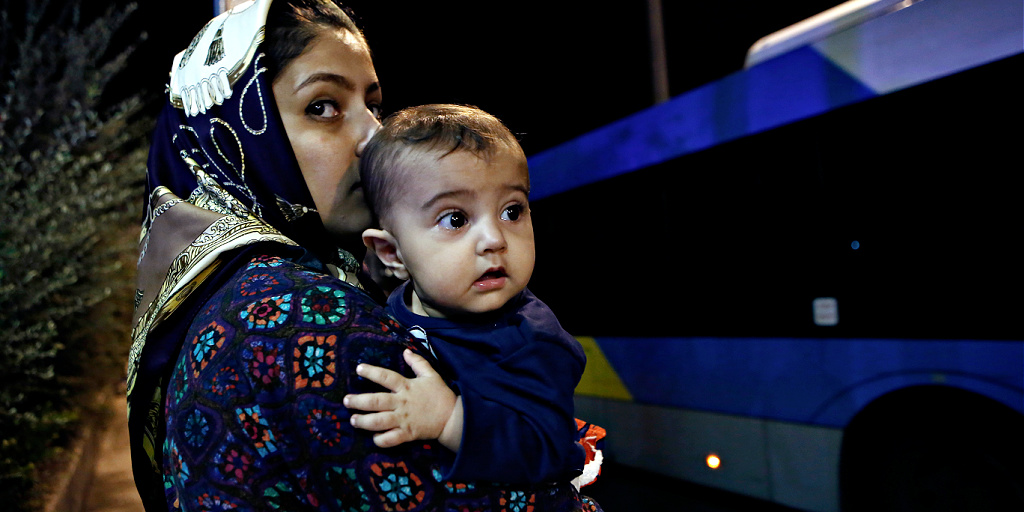Time was running out for many Afghan refugees living and working in the United States after American troops withdrew from Afghanistan. Thanks to the Biden administration’s recent decision to extend what is known as “parole,” many Afghans will now be given the opportunity to continue to live and work in the U.S. lawfully so that they can pursue permanent protection here—but it will still take a concerted effort to ensure they receive it.
As a result of the swift takeover of Afghanistan by the Taliban, the Biden administration moved quickly to evacuate Afghans who had supported the U.S. government and its military efforts, as well as those who feared they would face persecution. The evacuation, dubbed Operation Allies Welcome (OAW), required extraordinary mobilization across the federal government and among the states, communities, and non-profit organizations that helped to resettle the almost 90,000 Afghans brought to the United States under OAW.
Due to the unique circumstances of the evacuation, this process did not align with the normal refugee resettlement case arc. The Afghans that resettled in the U.S. did not arrive with official refugee status. As a result, they had different legal and support needs than those historically provided by resettlement agencies. Most Afghans would have to fight for their right to stay in the U.S. permanently, either by applying for asylum or for a Special Immigrant Visa (SIV) – a visa for individuals who worked with the U.S. government.
Upon arrival, the Afghans resettled under OAW were granted humanitarian parole for two years. This status has permitted them to stay and work in the U.S. while they applied for permanent status. Now, almost two years after the evacuation of Kabul, many Afghans have not yet applied for protection or are still awaiting a final response from U.S. Citizenship and Immigration Services (USCIS) on their application.
It is in this context that the Department of Homeland Security (DHS) announced its intention to extend parole for Afghan nationals resettled under OAW for two more years on May 5, 2023, and opened the official process for re-parole on June 8. The re-parole announcement is a welcome development and offers Afghan evacuees the time they need to continue to apply for protection. It also gives USCIS more time to process, review, and hopefully approve those applications.
This is what we now know about the Afghan re-parole process:
- This process is only available for certain Afghans paroled into the U.S.
- The form to apply for re-parole is a modified version of USCIS Form I-131, and includes extension of employment authorization in the same form.
- The application for re-parole and employment authorization is free of charge.
- The application can be submitted online, via USCIS, or by paper.
- Applicants will need a copy of an official government-issued identity document, and their Form-I-94, Arrival/Departure Record.
- Re-parole will extend humanitarian parole and employment authorization for two years.
- Afghan parolees who have already applied for asylum or for adjustment of status to become a lawful permanent resident do not need to apply for re-parole under this process. DHS will consider extension of humanitarian parole and employment authorization in these circumstances on a case-by-case basis.
The introduction of the re-parole process is an important demonstration of the Biden administration’s ongoing commitment to supporting Afghan nationals and is critical considering the challenges many have faced in achieving permanent status. At the same time, this good news also signals an important shift in the landscape of need for Afghan evacuees—as humanitarian parole will expire for most in the coming months.
Now that the process has been officially announced, legal and humanitarian service providers nationwide are launching coordinated efforts to scale legal services for Afghan nationals seeking re-parole, including the Immigration Justice Campaign through our partnership with the Welcome Legal Alliance. The non-profit community cannot do this work alone. The effort to rapidly support tens-of-thousands of Afghans to extend their parole will not be possible without the support of pro bono attorneys and other volunteers nationwide.
Importantly, the need does not stop there. Following the sprint to apply for re-parole, Afghans will still need support to obtain permanent status. Unfortunately, adjudication of Afghan asylum applications has lagged despite promises to expedite the process, resulting in ongoing litigation. In addition, most humanitarian parole applications received from Afghans abroad remain pending. In desperation, an increasing number of Afghans are now crossing the U.S. southern border to seek protection. These individuals do not receive the same benefits as those resettled under OAW and will need support as they move forward with defensive asylum cases in immigration court.
All of this will require incredible effort and coordination among the non-profit legal service providers, pro bono attorneys, private attorneys, and countless others who have dedicated themselves to providing legal services for Afghans. But the need far outstrips current capacity.
Moving forward, it will be important to continue to urge Congress to create a more streamlined process to secure permanent status for Afghans and to advocate for federal funding to increase access to legal services. It will also be critical to work with the community to identify and support those who need help navigating a challenging U.S. immigration system.
FILED UNDER: #Afghan


